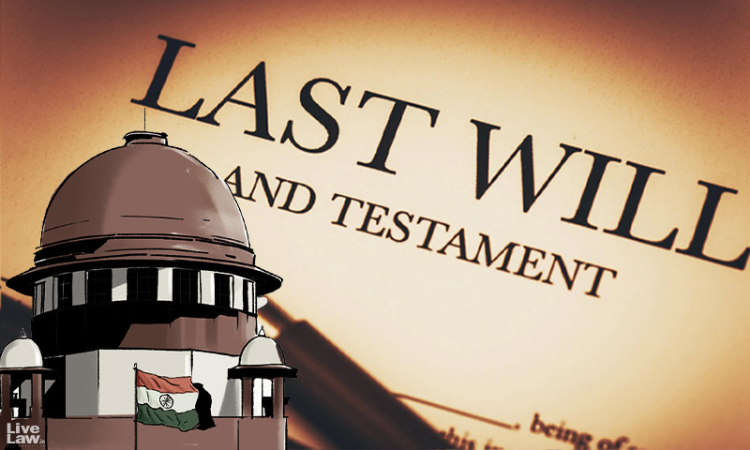- Home
- /
- Supreme court
- /
- S. 68 Evidence Act | Mandatory To...
S. 68 Evidence Act | Mandatory To Examine One Attesting Witness To Prove Will Even If There's No Dispute Between Legal Heirs : Supreme Court
Yash Mittal
6 Sept 2025 2:27 PM IST
The Supreme Court recently held that Section 68 of the Evidence Act makes it mandatory to examine at least one attesting witness to a Will, and this requirement cannot be dispensed with merely because the dispute does not involve contesting legal heirs. A bench of Justices Aravind Kumar and Sandeep Mehta heard the case where the Plaintiff-Respondent claimed that he had purchased the...
The Supreme Court recently held that Section 68 of the Evidence Act makes it mandatory to examine at least one attesting witness to a Will, and this requirement cannot be dispensed with merely because the dispute does not involve contesting legal heirs.
A bench of Justices Aravind Kumar and Sandeep Mehta heard the case where the Plaintiff-Respondent claimed that he had purchased the property from his father in 1996 through an Agreement to Sell, General Power of Attorney, affidavit, receipt, and a registered Will. He alleged that his brother, Appellant-Ramesh Chand (defendant), was initially a licensee who later sold half the property to a third party (Respondent No. 2) illegally.
The Defendant-Appellant claimed that the property was orally gifted to him in 1973 and that he had been in possession since then. He challenged the plaintiff's documents as invalid and sought a declaration of ownership. Amongst other documents, the Appellant challenged the Will through which the Respondent was asserting his claims over the property.
The Appellant challenged the Delhi High Court's decision which held that non-examination of at least one attesting witness under Section 68 of the Evidence Act was not fatal to the Respondent's case, because the case did not involve a dispute between legal heirs as the Appellant was not a legatee and was claiming an independent title through oral transfer, the strict rules of proof for wills could be relaxed.
Rejecting the High Court's view, the judgment authored by Justice Aravind Kumar emphasized that Section 68 does not create any exceptions based on the identity of the opposing party or the nature of their claim.
It added that the mandate of Section 68 applies to every Will sought to be used as evidence in a court of law, irrespective of who is opposing it.
“Even the High Court, while evaluating the validity of the Will, has gone on a different tangent and has erroneously held that the requirement of examining the attesting witnesses springs into action only in cases of disputes between legal heirs. Such an observation is quite contrary to law, for Section 68 of the Evidence Act makes it mandatory to examine at least one of the attesting witnesses of the Will.”, the court observed.
Cause Title: RAMESH CHAND (D) THR. LRS. VERSUS SURESH CHAND AND ANR.
Citation : 2025 LiveLaw (SC) 862
Click here to read/download the judgment
Also From Judgment: Agreement To Sell, General Power Of Attorney Won't Confer Title In Property : Supreme Court Reiterates



